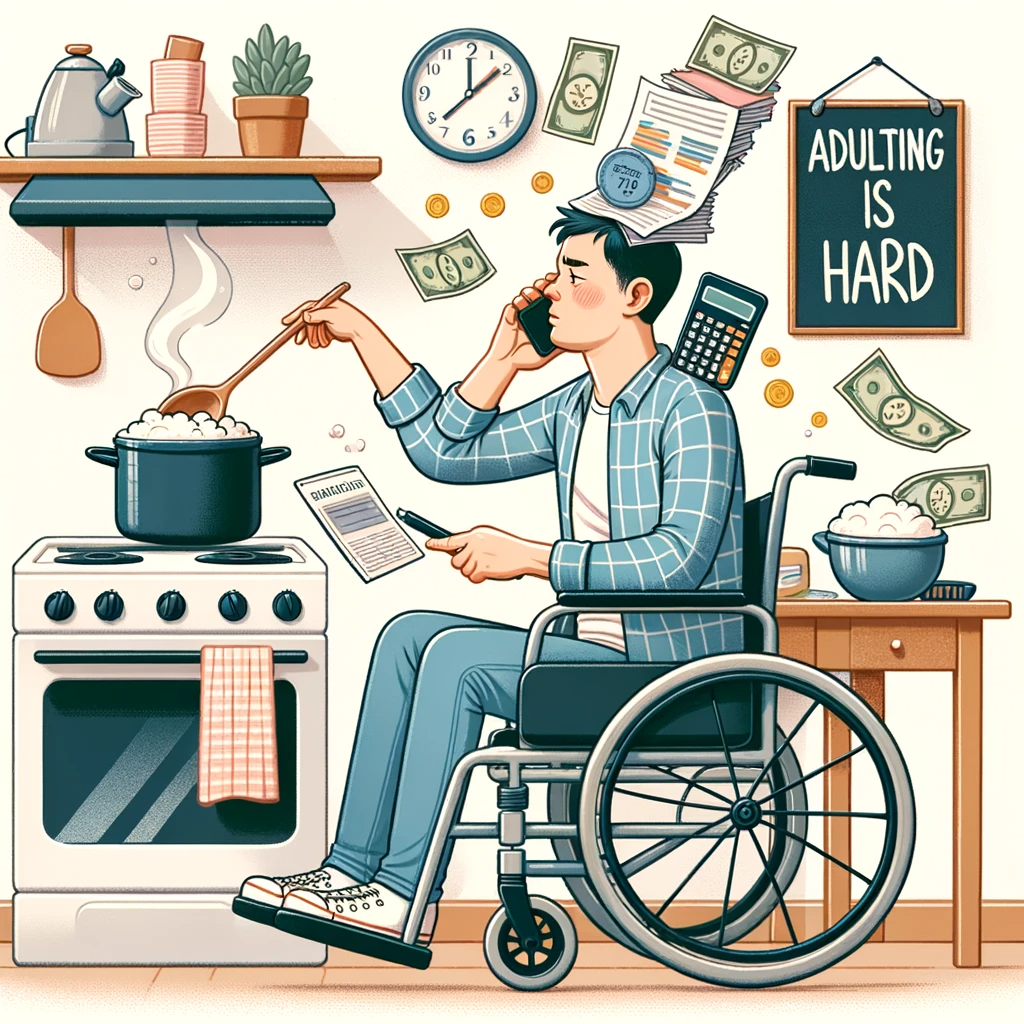“Adulting” has become a buzzword of our times, often thrown around in jest to describe the grueling ordeal of managing bills, maintaining a social calendar, or just doing laundry. Sure, these daily tasks are a rite of passage into adulthood, but for me, the essence of becoming an adult isn’t found in the laundry pile; it’s in the tough, uncomfortable, and crucial conversations we face.
My journey has acquainted me with numerous such moments—moments demanding the courage to embark on conversations that slice through the veneer of comfort, leaving behind a rawness that is as real as it is transformative. These interactions are not for the faint of heart. They are the kind that dredge up emotions deep-seated and often feared, forcing both parties into a vulnerable tightrope walk between what is and what could be.
The jokes on ‘adulting’ are relatable because they reflect a universal truth: being an adult is hard. But the seldom acknowledged truth is that the quintessential growth of an individual is not merely in paying bills on time or keeping the fridge stocked—it is in the daunting task of engaging in dialogues that can potentially reshape the landscape of our relationships. These conversations come with a high price tag of emotional investment. They are daunting, not just because they are intrinsically uncomfortable, but because they require a dismantling of the ego, a suspension of defensiveness, and an open embrace of potential.
For those of us navigating the world with a disability, such conversations often take on an additional layer of complexity. We confront not just the universal themes of misunderstanding and relationship dynamics, but also the deeply entrenched societal perceptions about disability, independence, and capability. We’re not just discussing who forgot to take out the trash—we’re also often advocating for our autonomy, our needs, and our place in a world that doesn’t always know how to accommodate us.
The pain these conversations evoke is acute; they can be emotionally draining and saturated with the fear of the unknown. Yet, through the crucible of this discomfort, there emerges the possibility of genuine connection. It’s a cathartic process where, if navigated with care, the rewards can be immeasurable. A well-trodden relationship can find new paths, and an understanding can be reached that seemed like a mirage in the desert of miscommunication.
The necessity of these dialogues cannot be overstated. Avoidance might offer a temporary balm, but the underlying issues, untreated, can fester and lead to a deterioration that no amount of superficial pleasantries can repair. It is in the willingness to confront the discomfort head-on that we find the seeds of resilience and the potential for personal and collective evolution.
The reality is that not every hard conversation will culminate in a fairytale ending. There are no guarantees of resolution or mutual understanding. However, the act of engaging in these discussions is a declaration of hope—a belief in the possibility that through the murkiness of conflict and the maze of contention, there is a chance to emerge on the other side.
Hard conversations are the unspoken rites of passage into the deeper echelons of adulthood. They are the unsung heroes in the stories of long-lasting friendships and familial bonds that weather the storms of life. They are, without exaggeration, the bedrock upon which meaningful human connections are fortified.
In my life, I have faced many such conversations with trepidation, armed only with the belief that the temporary discomfort was a worthy investment for long-term relational health. These discussions have ranged from setting boundaries to expressing needs that are unique to my situation, to confronting misunderstandings birthed from the complexities of human interaction.
Each dialogue was a lesson in itself, an education in the human psyche, and a masterclass in emotional fortitude. Some have ended in tears, some in laughter, and others in a contemplative silence that speaks volumes. But all have contributed to the rich tapestry that constitutes my social existence.
The beautiful, brutal truth about hard conversations is that they are less about the outcome and more about the process. They are a testament to the strength of the human spirit and its capacity for growth. As an adult, particularly one navigating the additional nuances that come with having a disability, I’ve come to realize that these conversations are less a burden and more a privilege—a chance to forge authenticity in an often inauthentic world.
So here’s to the awkwardness, the pain, the hope, and the growth that hard conversations bring. May we all have the courage to face them, the strength to persevere through them, and the wisdom to learn from them. In the end, it is through these difficult exchanges that we come to understand not only those around us but also ourselves, in profound and life-altering ways.
I’d like to make this blog a bit more interactive, so I’ve created a Google Form that lets anyone send in questions or topics they would like me to explore. You can even submit anonymously, if you wish.
Tell me what you want me to write about. Nothing is off-limits, but I don’t guarantee I will create a post based on your input.
